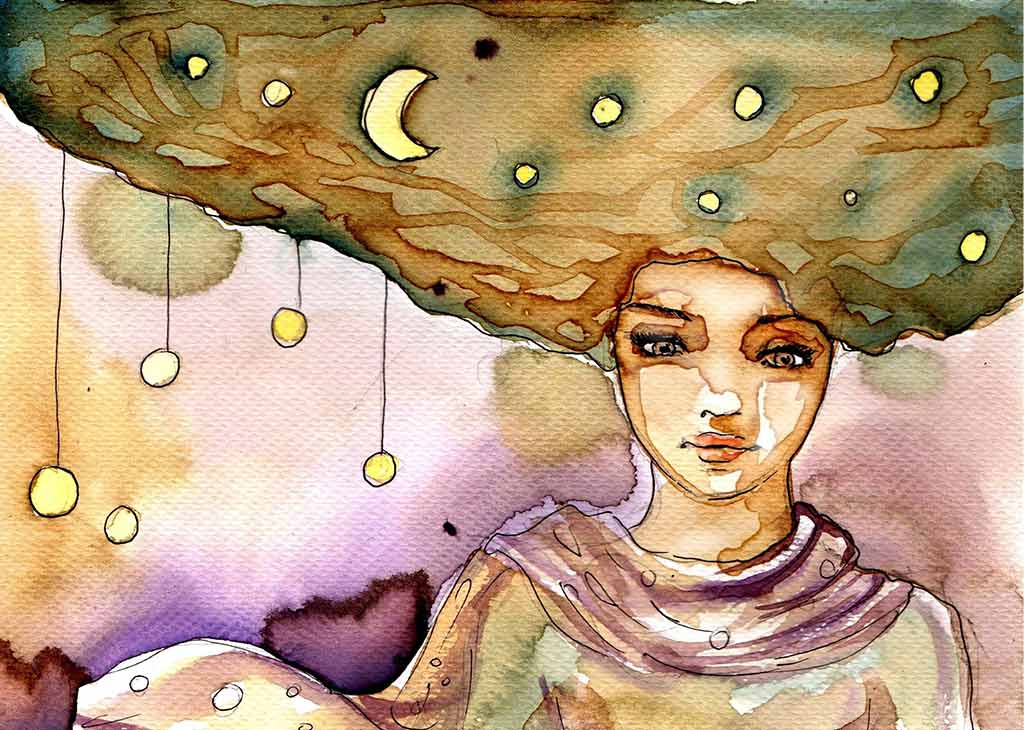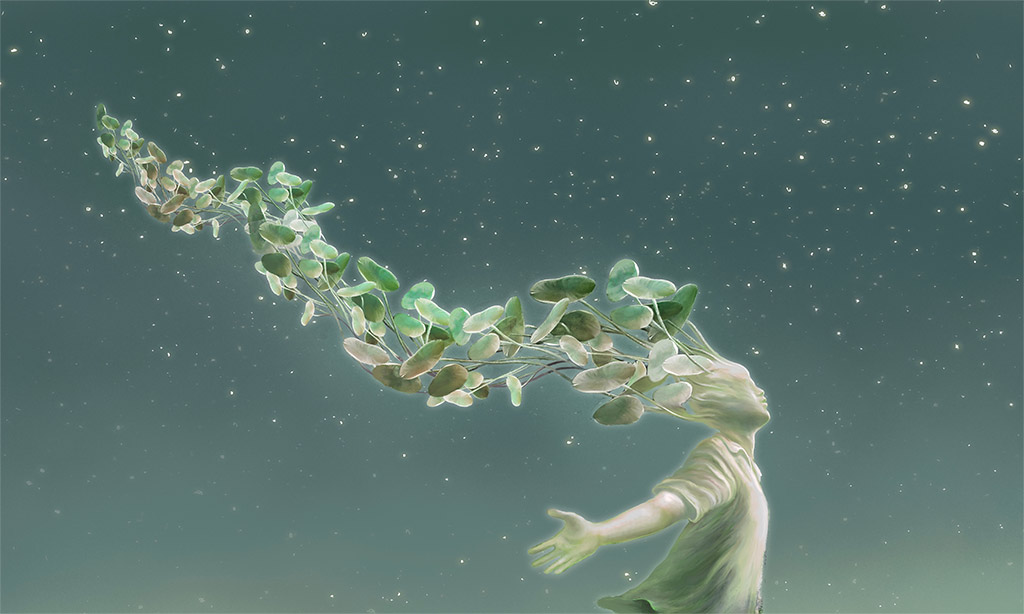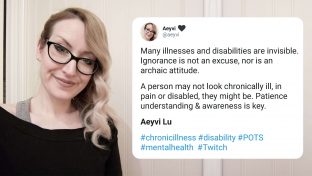Autism Loneliness: Why Those On The Spectrum Often Feel Alone

Loneliness is common among those with autism, and though it looks different for each person, autistic adults are particularly likely to experience loneliness, with an estimated 1 in 3 being socially isolated.
- A pervasive myth about autistic people suggests that they don’t feel empathy and that loneliness doesn’t affect them — when in reality, their lived experiences and various studies suggest otherwise.
- Loneliness in those on the spectrum can result from communication barriers, the pressure to fit in with others (particularly neurotypical crowds), and common misconceptions others have about autism.
- Adults with autism may struggle to find useful resources and ways to cope with their loneliness and isolation — and those coping mechanisms may look different compared to others’.
Struggling with loneliness or having a mental health crisis?
- Suicide Prevention Lifeline: 1-800-273-TALK (8255); Deaf or hard of hearing dial 711 before the number or connect via online chat
For nearly forty-eight years, Rosemarie, a mom of four who loves to write, didn’t understand why she experienced life differently than other people — or why she was so lonely.
Recalling her middle and high school years, Rosemarie said she remembers “telling adults about how I didn’t understand something and being laughed at, or crying because I was empathetic and being told that I was a big baby.”
“[I remember] being on the verge of a meltdown and being taunted or ignored when I pleaded for comfort. All of these things happened through most of my life.”
Rosemarie continued to be overwhelmed by feelings of frustration, uncertainty, and loneliness until she finally received a diagnosis that brought clarity to her life:
She was autistic.
Before I go further, it’s important to understand important terms related to autism, how autism is defined, and what it means for those who exist within the spectrum.
- Neurotypical, meaning “neurologically typical,” is an umbrella term that refers to anyone who does not have developmental conditions or other disorders that affect brain processing.
- Allistic refers to individuals who are not autistic, but who may or may not have conditions that impact brain processing (ADHD or Tourette syndrome, for example).
- Neurodivergent, or “neurologically divergent,” is an umbrella term that refers to anyone who has a developmental condition or disorder that affects brain processing (such as autism or dyslexia, for example).
- Autism (also known as ASD, or autism spectrum disorder) is defined as a condition that relates to the development of the brain, affecting the way an individual processes the world around them. The condition is frequently characterized by difficulty communicating or socializing.
- Asperger’s (also known as Asperger Syndrome) was previously used as a diagnosis for autistic individuals who were considered to be neurodivergent but on the “high-functioning” side of the autism spectrum; “functioning” labels often overlooked the relationship between Asperger’s and loneliness, as well as other symptoms, instead focusing on how “normal,” or neurotypical, an autistic person appeared. Today, however, the diagnosis of autism or autism spectrum disorder is both preferred by most autistic people and medical professionals, as labels that focus on “functioning” are often seen as problematic.
As I spoke with people who live at various points along the autism spectrum, I discovered that their experiences with loneliness were not so different from one another.
Why are autistic people often lonely, and what does loneliness look and feel like for autistic individuals?
In this article, I’ll share honest stories from those who live with autism, the reasons why they frequently experience loneliness, and how they cope.
What Does Autistic Loneliness Look Like?

Feeling like an outsider and watching as others move through the world with ease isn’t an unusual feeling for Leigh, a 35-year-old writer from Derbyshire, England.
While Leigh didn’t know the precise reason why she felt so different from others for much of her life, she always understood how it felt to be lonely.
“I feel lonely a lot of the time because I always feel like I am on the outside looking in. I’m often not invited to work nights out because I’m seen as being weird,” she told me.
“Loneliness, for me, looks like I am in the world but can’t interact with it, almost like being a ghost. I often think I could stand in a busy street and scream and no one would notice.”
Leigh’s experience of feeling things deeply may surprise those who are outside of the autistic community.
Aspberger’s was once a common term used to describe a type of autism, however, it is now viewed as outdated by many medical professionals and autistic people.
That said, someone may retain their diagnosis of Asperger’s because it was given at a time when the designation was more commonplace – this includes feelings of loneliness due to Asperger’s.
Every autistic person needs to be granted the autonomy to make their own choices – including how they label themselves.
When we talk about autistic loneliness and autism in general, it applies to all associated diagnoses — past and present.
A pervasive myth about autistic people suggests that they don’t feel empathy and that loneliness doesn’t affect them.
In reality, their lived experiences and various studies suggest otherwise.
Social isolation can easily lead to loneliness in both neurotypical and neurodiverse individuals.
However, social isolation is often a problem for autistic people because the majority of available resources are aimed at assisting children or parents of children with autism and not autistic adults.
Adults with autism may struggle to find useful resources and ways to cope with their loneliness and isolation.
Leigh, who was diagnosed as autistic at the age of 35, explained that finding helpful resources, coping mechanisms, and even medical professionals, has been difficult.
“My general practitioner was questioning me on why I wanted to [receive] a diagnosis [of autism] with phrases such as ‘you look fine’ and ‘you have coped so far’ being thrown about,” she explained.
“I got a different general practitioner, [but] I wish I was diagnosed a lot sooner as I feel I could have accomplished a lot more in my life with the right help.”
Although I’m neurotypical — someone without a developmental condition or other disorder that affects brain processing — Leigh’s story was familiar to me.
After I became disabled, I struggled to find resources that would help me to navigate my life and felt immensely alone in the process.
When medical professionals — the people who are supposed to help — are dismissive, it can make you feel very small.
While a lack of useful resources can cause isolation, some autistic people simply prefer to spend the majority of their time alone, and for these individuals, loneliness can feel a bit different.
Cheyenne, a graduate student and Navy veteran, likes spending time on her own and doesn’t always enjoy socializing.
When she does try to socialize with others, however, she often ends up feeling lonely.
“Being autistic affects me [the most] socially,” Cheyenne said. She explained:
“I don’t take interest in the things others do — relationships, group events — and I’m often not interested in anything that doesn’t include learning a skill or something new.
There needs to be a purpose for anything I do and I crave information. As someone who actually enjoys solitude, loneliness to me is being outcast by peers no matter what I do when I’m trying to interact with others.”
All autistic individuals cope with and express feelings of loneliness differently, yet they still need to build connections with other people – which is a basic human need.
Beyond friendly relationships, autistic people may seek out romantic relationships, as well.
Love On The Spectrum is a series on Netflix that portrays young autistic adults in the dating world.
Not only does it offer vital inclusion for autistic people, but it provides neurotypical folks a better understanding of their struggles.
You can check out the trailer here:
Regardless of how loneliness presents itself or the types of relationships being sought, autistic people very much feel the effects of being lonely — sometimes, more than the rest of us do.
Whether they want to spend time with others or prefer to be alone, autistic people as a whole are prone to loneliness. For those with autism, loneliness often means being ignored or excluded by friends, family, or peers, making them feel like an outsider looking in.
Three Common Causes Of Loneliness For Autistic People
The three most common causes of loneliness in autistic people are related to differences in communication, the pressure to fit in with others, and dealing with misconceptions about their autism.
Differences In Communication Can Create Barriers
For many autistic people, communication can be a challenge for a variety of reasons.
Knowing what tone of voice to use, discerning what others’ facial expressions are meant to communicate, and making direct eye contact can be challenging aspects of communication for autistic people.
Such obstacles can make it difficult to build relationships with others.
Chris, a railroad engineer in his early forties, said he often feels most alone when he finds out that friends or family members spent time together without him.
He told me that he thinks his straightforward, blunt way of talking causes others to exclude him.
“I feel lonely in relation to being autistic quite often, actually,” Chris said. “It’s mainly because I can’t relate to my peers in the way they’d like, so I end up feeling like an outsider.”
“Since I have a tendency to say what’s on my mind — whether people want to hear it or not — exclusion has become more common over the years,” he explained.
Chris recalls “many instances of friends or relatives going out and having a high old time, and I don’t find out about it until it comes up in a conversation or on social media days or weeks later.”
Autistic people are often prone to sensory overload, and this can lead to communication struggles when they’re receiving too many sensations at once.
While I’m sure everyone’s experience with sensory overload is different, as a symptom of my own disability, I know how miserable it can be.
Even the smallest noise is too loud, the softest light is too bright, and every little thing grates on my nerves.
Jasper, a disabled and autistic 25-year-old from Newcastle, England, recalled moments when adults misinterpreted the ways he communicated as a child, particularly when he experienced sensory overload.
“There have definitely been a lot of times I’ve felt lonely, from people just not understanding what I mean or not listening to what I say, and that can feel really isolating,” he explained.
“Especially when I was younger, people assumed my behaviour, such as [having a] meltdown or flapping [my hands or arms], was me being a bad child, rather than listening to the fact I was clearly upset.”
Jasper added that the way he communicates still impacts how others treat him as an adult. He told me:
“A few years ago, two really good friends of mine effectively ghosted me and I later found out that was because they couldn’t cope with how direct I was, and that made me feel really awful.
A lot of autistic people really struggle with friendships because our brains just work in a different way, which means the way we communicate is not something neurotypical or even just non-autistic (allistic) people are used to.”
Rosemarie, the mom and writer from Montreal I spoke with earlier, said that communicating with others, particularly those she doesn’t know, can be difficult because she is often misunderstood.
“When dealing with strangers, I am often left confused or saddened by our interaction,” Rosemarie told me.
“Those who are close to me now know that when I ask a question, it isn’t that I am questioning them, it is that I am gathering information,” she explained.
Outside of social contexts, communication plays a major role in self-advocacy.
Advocating for yourself is hard enough as it is; when I first became disabled, I was hesitant to request accommodations or to ask about accessibility.
I didn’t want to be seen as different or burdensome. Not saying anything at all, however, only meant that my needs weren’t met.
In addition to communication difficulties, many autistic people are often infantilized or ignored altogether.
While autistic individuals with no “visible” symptoms are sometimes told they’re exaggerating or that they’re being lazy, those with more “obvious” symptoms are infantilized and often assumed to be unintelligent, especially if they are non-verbal.
Cheyenne, a graduate student and Navy veteran, explained that expressing herself and sharing her experiences was difficult at times, particularly because of the way others viewed her.
“I had many low moments prior to diagnosis when my teachers or peers assumed I was lazy or making excuses,” Cheyenne said.
“Then after diagnosis, those same people either treated me like a child or ignored me because they thought I was broken,” she told me. “It took a long time to share my experiences with others.”
Regardless of an autistic person’s unique challenges, not being able to communicate clearly — or simply not having their methods of communication respected — can be incredibly lonely and isolating.
Feeling Pressure To “Fit In” With “Normal” People
For many with autism, the pressure to “fit in” and appear “normal” can be overwhelming, particularly because being autistic is often a huge part of their identities.
Rosemarie, the writer I spoke with earlier, said that she has felt pressured to “fit in” with others her whole life.
Though her life began to make more sense to her after she was diagnosed as autistic two years ago, she explained that the pressure to be “normal” still exists. She told me:
“All my life, I have had people who expressed that they preferred that I ‘behave more normally,’ from family who didn’t like the way I physically expressed myself to partners who gas-lighted me into presenting myself as they felt I should.
I have been teased about my vocal stimming. I have been picked [on] for how I walk and even how I breathe. All of it has made me super self-conscious and very self-critical. I was always looking to behave, and therefore be, perfect.”
Like Rosemarie, Chris, the railroad engineer I spoke with earlier who found out he was autistic in his mid-twenties, expressed how frustrating it is to hear others’ expectations of what he “should” be.
“I’ve felt [pressure to ‘fit in’] for my entire life, not even exaggerating,” Chris told me.
“The pressure came from a little of both [myself and my parents],” he said. “I had to fit parents’ expectations early on, then those of teachers and other kids in school, and so on, up to this very day in a job full of blue-collar men.”
“At first, the pressure was external,” Chris explained. “So I acquired the feeling that in order to be accepted, wanted, and even loved, I had to change whatever it was that people didn’t like, which is where the internal pressure started.”
“But it never occurred to me that ‘you can please some people some of the time, but you can’t please all people all of the time,’” he said.
In addition to feeling pressure from family and friends, autistic people may also receive pressure to modify their behaviors from medical professionals.
One of the most common and most controversial forms of therapy that autistic children receive, applied behavioral analysis or ABA, aims to encourage autistic children to exhibit “good” behaviors.
“Good” behaviors such as eye contact or speaking are encouraged, while “negative” behaviors, such as stimming and repetitive behaviors like fidgeting or hand-flapping, are discouraged.
While some parents and family members of autistic people often praise ABA, many autistic adults — and even some former therapists and recent studies — denounce it.
Critics of ABA say it encourages compliance, regardless of how uncomfortable or painful it is for the patient, and that it discourages harmless behaviors that come naturally to many autistic people.
They also feel that it impacts autistic individuals’ sense of self-worth by suggesting the traits associated with autism are inherently negative.
Dr. Tasha Oswald, Ph.D., founded Open Doors Therapy, a program that helps to empower neurodiverse individuals.
She explained that constantly feeling like you have to change who you are, including the ways you act, think, and communicate, is draining for autistic people and contributes to their loneliness.
“Many of my autistic clients over the years have described to me how they feel like they are a fraud because they pretend to be someone they are not,” Dr. Oswald told me, referencing imposter syndrome.
“On the inside, they feel different from others, defective, or broken, and on the outside, they tirelessly work at fitting in,” she explained.
“It is crucial to strike a balance between helping autistic people thrive while not giving them subtle or overt messages that they are flawed.”
Dealing With Misconceptions About What It Means To Be Autistic
As I spoke with autistic individuals of different ages and from different backgrounds, I started to recognize a theme throughout their stories.
In many cases, autism is related to loneliness but not necessarily because of the individuals themselves — rather, it’s due to others’ preconceived notions of what it means to be autistic.
Katie, a 25-year-old woman from Florida, expressed her frustrations at the way some individuals treat and view autistic people.
“Some people think that autistic people are like robots or something and don’t feel emotions, but that’s just not true,” she explained.
“We’re all different, and we often feel things much more deeply than neurotypicals — it’s just that we don’t always know how to express these things to other people.”
Autistic people with high intellectual and emotional intelligence may be more prone to loneliness than others, despite the fact that neurotypical people may think otherwise.
Dr. Oswald, the founder of Open Doors Therapy, shared seven of the most common myths about autism and autistic people. They included:
- If a person makes good eye contact, they must not be autistic.
- Women can’t have autism.
- Autistic people prefer to be alone.
- People on the autism spectrum are not empathetic.
- Their face looks blank, so they must not be feeling anything.
- They aren’t looking at me, so they must not be listening to me.
- People with autism don’t feel deep emotions because they don’t show emotions.
As many autistic people explained to me and as I’ve found in my own experience, fighting against common misconceptions and myths is both exhausting and lonely.
When I attended college, a professor questioned my disability while we discussed accommodations that would make the class accessible to me.
The implication that I didn’t look disabled was infuriating because disability doesn’t have one specific appearance.
I hated feeling as though I somehow had to prove myself to this individual, and that I — the person who knows my body best — was being questioned about the legitimacy of my conditions.
It’s common for those with autism to have their identities questioned, too.
Hearing comments like “You don’t look autistic,” or “I thought autistic people don’t have empathy,” is draining, and when you’re reduced to stereotypes or your own lived experiences are ignored, it’s easy to feel alone.
Communication is often a challenge for autistic individuals, particularly when others misinterpret or ignore their efforts to communicate their thoughts and feelings. As a result of not being understood or listened to, autistic people frequently feel lonely.
When autistic people feel as if they have to change themselves, whether as a result of pressure from family, friends, medical professionals, or even themselves, they often begin to feel as if they are “broken.” In addition to causing discomfort and frustration, feeling like they have to change themselves at a foundational level is a common cause of loneliness.
Finally, the stigmas and misconceptions about autism often affect the way people treat the autistic. Being infantilized or seen as inherently different is isolating and often causes loneliness in those with autism.
Autistic People Cope With Loneliness Differently Than Others — And That’s Okay!

Whether neurotypical (without conditions that affect the brain) or neurodivergent (someone with such conditions), every individual has their own way of dealing with loneliness.
That said, autistic people may cope differently than others expect.
When talking about loneliness, many of the people I spoke with said that the timing of their autism diagnoses had a major role in the coping skills they’d developed.
Katie, the 25-year-old from Florida I spoke with earlier, was only diagnosed as autistic last year at the age of 24.
She believes that she would have learned to cope differently with stress, depression and loneliness if she’d known she was autistic earlier in life. She said:
“As an autistic woman, I learned to hide my differences and internalize them from a very young age, which brought me intense levels of anxiety, stress, and depression.
To other people, I looked ‘normal’ on the outside, but on the inside, I was falling apart. This is incredibly common with many autistic women, and it is called masking.
Typically, but definitely not always, autistic men stand out more and don’t always know how to hide their differences.
I always did [though], and I hid them so well that most people didn’t believe me when I started bringing up that I thought I was on the spectrum.”
Those who were diagnosed at an earlier age, however, said that they had a more solid set of coping mechanisms to fall back on during times of stress.
Diagnosed as autistic early in childhood, Jasper, the 25-year-old from Newcastle, has had the benefit of time, enabling him to learn the best ways to handle loneliness or stress. He said:
“Coping skills I use now are things like using fidget toys when stressed, having a plan with my loved ones if I go into a meltdown, being aware of my triggers — and these are things that do take years to hone in on and find a way that suits you.”
Unlike Jasper, Cheyenne, the disabled military veteran I spoke with earlier, wasn’t diagnosed as autistic until she was 28.
“I wish I would have been diagnosed sooner because I missed opportunities for support that impacted my mental health,” Cheyenne said.
“Being a black disabled female who was in the military made it almost impossible to get tested or taken seriously,” she explained. “I was also adopted, so doctors thought that perhaps I was just traumatized.”
Her experience isn’t unusual.
Women and people of color are often less likely to receive a diagnosis of autism, in part because autism can present itself differently in girls.
A late diagnosis of autism can have a long-lasting impact on a person’s wellbeing.
For Emily, an 18-year-old from England who is studying to be a mental health nurse, receiving a diagnosis of autism changed her perception of herself and allowed her to deal with and understand her feelings.
Additionally, being diagnosed as autistic made it easier to learn ways to cope with her other conditions, including depression and anxiety. She explained to me:
“Growing up feeling confused, misunderstood, not understanding why I was the way I am, I felt so stupid because I didn’t understand things like other people.
It would have helped my teachers to understand why I kept having panic attacks, running away, and why, although I got impeccable grades, I still found learning harder than others.
Once I got my diagnosis, it was the start of being able to understand myself and recover from my illnesses.”
For many people with autism, connecting with the autistic community as a whole is helpful.
While some neurotypical folks may expect autistic people to mitigate loneliness by acting “more normal” (ie: more neurotypical), autistic people actually say that self-acceptance is one of the most helpful ways to deal with loneliness.
Rosemarie, a writer from Canada, explained that she has been able to understand herself better and has learned to feel a sense of peace by connecting with the autistic community.
“Self-awareness and acceptance has allowed me to comfort and heal myself,” Rosemarie told me. “Connecting to the autistic community has been a great blessing.”
“To be in a space that [makes me feel] mentally, verbally and emotionally available is an incredible feeling that I had searched for as far back as I can remember.”
Understanding that your differences are not inherently bad and having self-compassion is immensely healing.
Over the years, I’ve come to appreciate the things my disability has taught me, just as many of the people I spoke with have learned to appreciate themselves as autistic.
For many people, being autistic isn’t viewed as something negative — it’s simply a part of who they are.
Autistic people often feel less lonely when they’ve learned about autism and the specific ways it affects them — not by masking symptoms or by trying to mold themselves into someone else. Being part of a community with other autistic people and learning to love themselves also helps to alleviate loneliness.
Closing Thoughts
While being autistic may predispose an individual to loneliness, that doesn’t mean they will always be lonely.
Unlearning what the world often says about autism and those who have it, learning to hone their unique skills, and trusting their worth can ultimately help to alleviate feelings of loneliness in autistic people.
Katie, a 25-year-old from Florida, told me that although life can be challenging and lonely at times, being autistic isn’t something she wants to change.
“I love the ability to feel things deeply, even the painful things,” she explained. “I love stimming. I love noticing things that others don’t, even if it means that I sometimes don’t see the things that seem so obvious to [others].”
“I also love my ability to recognize patterns and see multiple perspectives. There’s nothing I don’t like about being autistic — I love it all, even when it isn’t easy.”
That’s all any of us can ask for in life.
Editor’s Note: This article is part of The Roots Of Loneliness Project, the first-of-its-kind resource that comprehensively explores the phenomenon of loneliness and over 100 types we might experience during our lives.
Find Help Now
If you’re struggling with loneliness related to autism (or know someone who is), we’ve put together resources to meet you wherever you are — whether you want someone to talk to right now, or are looking for longer-term ways to help.
- Suicide Prevention Lifeline: 1-800-273-TALK (8255); Deaf or hard of hearing dial 711 before the number or connect via online chat
- Resources & Emotional Support For Loneliness
- Volunteer & Pet Adoption Opportunities






